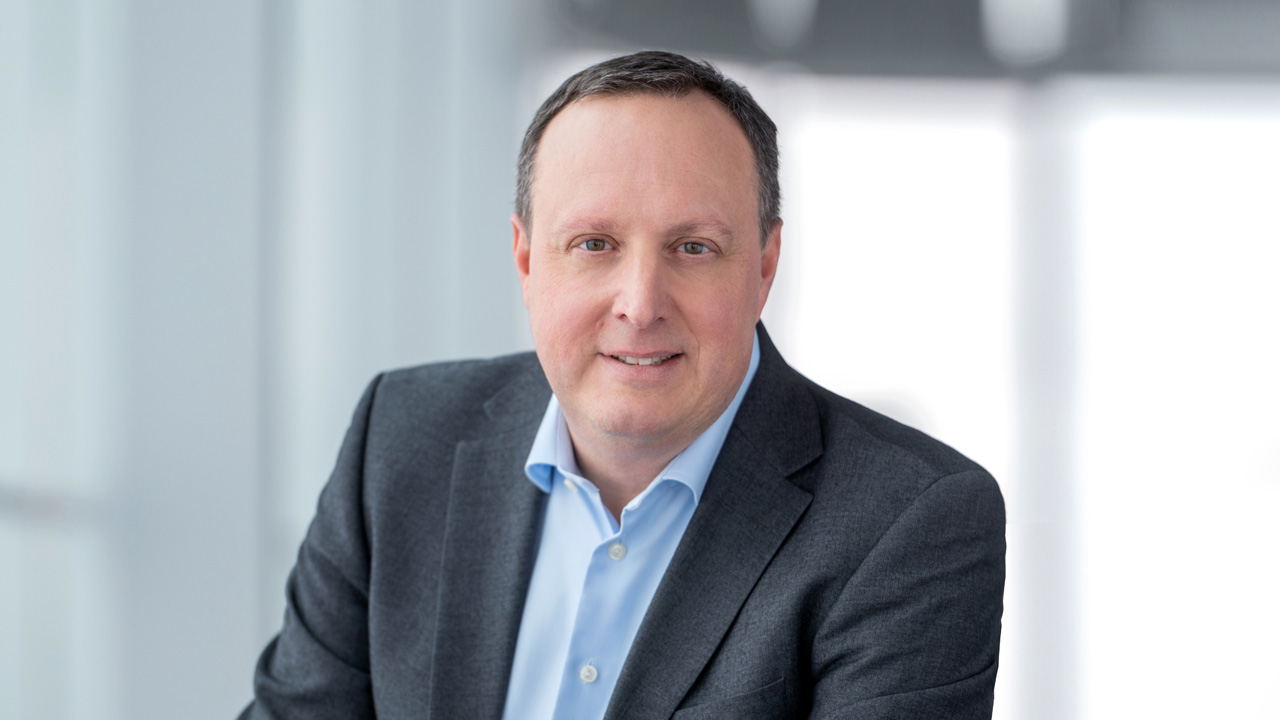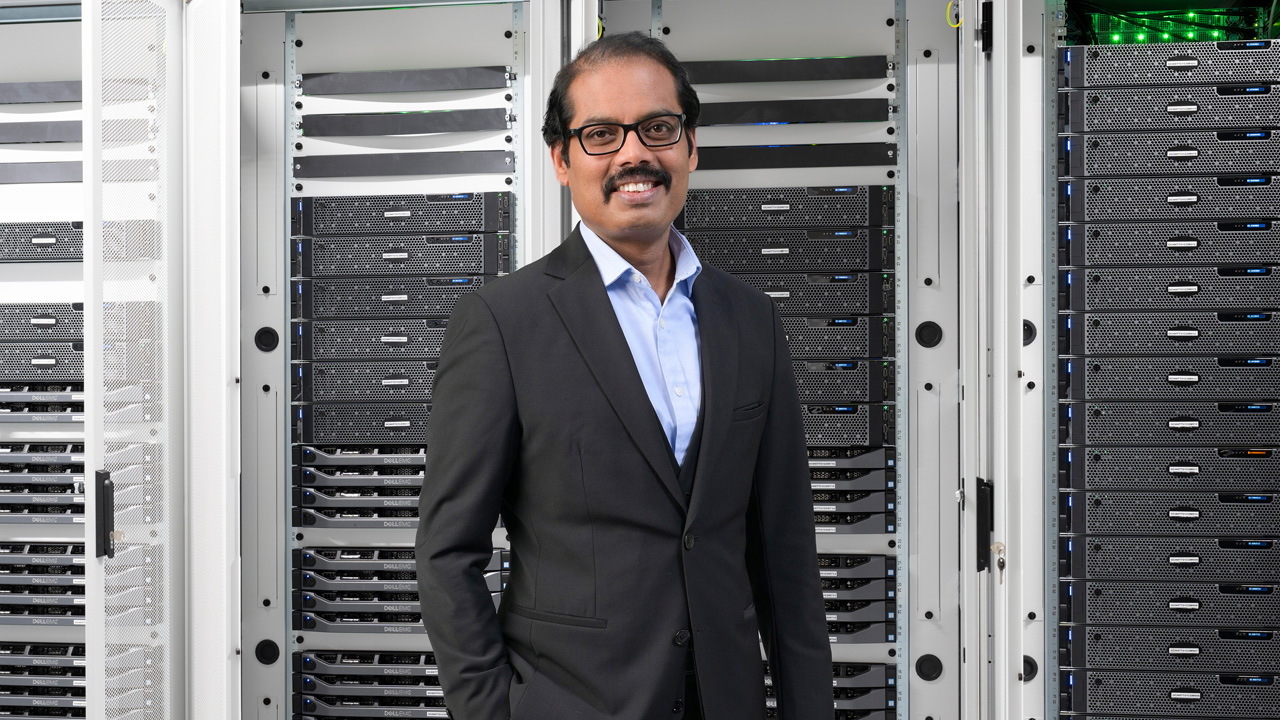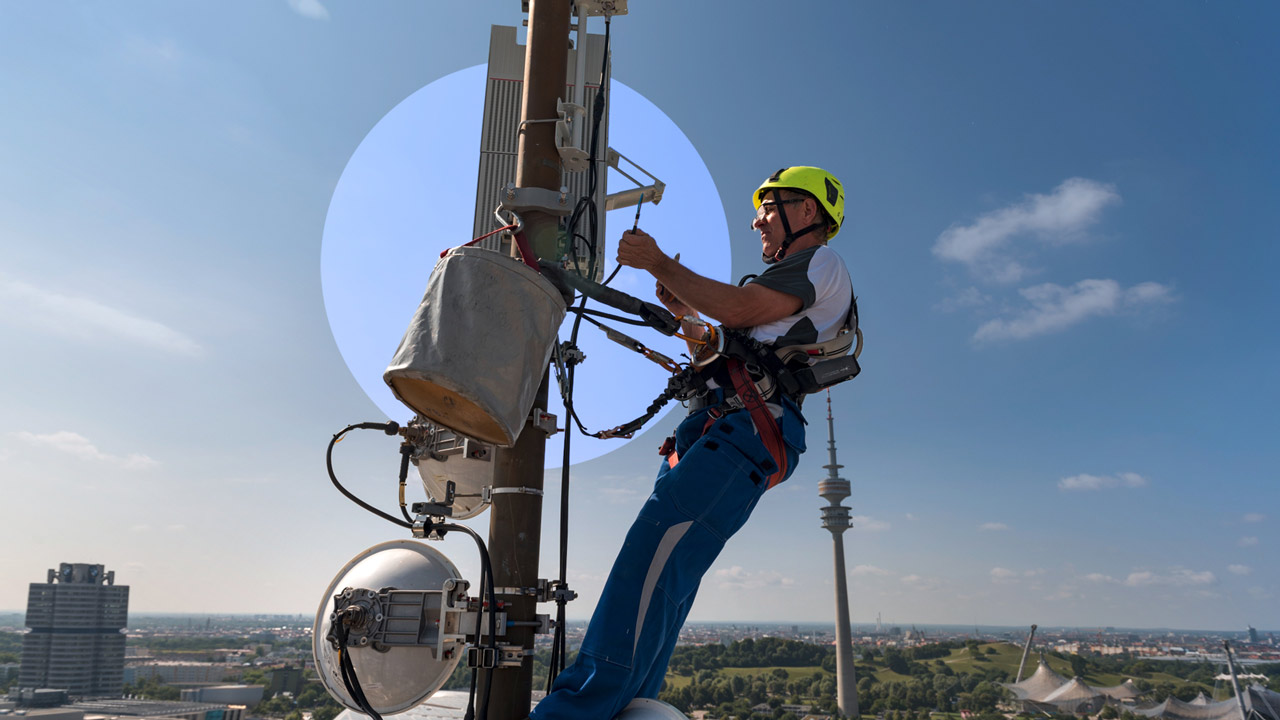12.10.2023
25 years of network expansion: O2 Telefónica shapes German mobile communications market with unique success story

Markus Haas
On the occasion of the anniversary, CEO Markus Haas appeals to use the full potential of mobile communications for a sustainable future for Germany.
The O2 Telefónica network celebrates its 25th anniversary in October 2023. In recent years, the telecommunications provider has invested massively in the development and expansion of the digital infrastructure in Germany and thus achieved a unique development. On the network's 25th birthday, CEO Markus Haas appeals to further accelerate the expansion of digital networks in Germany as well as to use the full potential of mobile communications for a sustainable future for Germany. "Politicians must continue to improve the framework conditions for network expansion in Germany and thus set the right course for network expansion over the next 25 years. In this way, we will all drive digitization in the country forward together," said Markus Haas, CEO of O2 Telefónica.
"Our network has been continuously improving over the past 25 years and today makes a decisive contribution to Germany's digital lifelines with very good quality. Our low-cost and diverse offerings have made access to digitization possible and affordable for many people in Germany in the first place," added Haas. "My thanks goes to our 44 million customers who rely on our network every day, and to our 7500 employees. Together, we will continue our success story in the coming years and further intensify digitization with our investments in network expansion."
Network launch 25 years ago enables digital participation
On 1 October 1998, VIAG Interkom, the predecessor of O2 Telefónica, launched its network operations in eight metropolitan areas. The O2 Telefónica network quickly became one of the most important mobile data highways for consumers. Following the acquisition of E-Plus by O2 Telefónica in 2014, a new, modern mobile network is being created in a major project that is unique in Europe.
Today, O2 Telefónica operates more than 44 million mobile lines and a high-performance mobile network with a total of around 28,000 sites. Virtually all citizens can use fast 4G/LTE mobile data services via the network. With the modern 5G mobile communications standard, O2 Telefónica already reaches 90 percent of the population. For its high quality, O2 Telefónica's network has been rated "very good" for three years in a row in the network test conducted by trade magazine connect.
"Germany must become the digital leader in Europe in mobile communications. O2 Telefónica wants to help achieve this by expanding its fast, green, and stable network. We want to provide all people in Germany with mobile communications on a sustainable basis and thus further improve their everyday digital lives. To do this, we need an environment that promotes investment: Whether it's the extension of frequency rights, the development of additional frequencies for mobile communications, simplified approval procedures or the financial participation of large tech companies in network expansion - with the right approaches, we can make Germany the European network champion of the future," says CEO Haas.
Sustainable networking solutions for consumers and business customers

Mallik Rao at the 5G data center in Munich ()
O2 Telefónica is steadily expanding its network for the digital future: By the end of 2025 at the latest, for example, the 5G standard is to be available for the whole of Germany. Customers of O2 Telefónica receive ever better network quality at a fair price: In the past three years alone, the telecommunications company has undertaken around 80,000 individual measures for network expansion. That's an average of more than 70 expansion measures per day, ensuring a continuously better network - including new 5G transmitters, additional network capacities and new locations to close radio gaps.
"The mobile world of today cannot be compared to that of 25 years ago. From being a mobile telephony provider, O2 Telefónica's network has transformed into a driver of responsible digitalization in the gigabit society. We are continuously investing in network expansion so that the whole of Germany is supplied with 5G as quickly as possible. We combine the best of new technologies such as artificial intelligence, cloud computing and automation to realize innovative connectivity solutions for consumers and business customers," explains Chief Technology & Information Officer (CTIO) Mallik Rao.

O2 Telefónica's network has already been transmitting 100 percent with green power since 2016
Modern technologies also contribute to greater sustainability. O2 Telefónica's network has already been transmitting 100 percent with green power since 2016. In addition, 5G is up to 90 percent more energy-efficient than previous network technologies. This is not only an important criterion in view of constantly increasing data volumes, but also relevant for all industries that want to make their own processes more sustainable based on digital services.
"Hardly any other industry is of such strategic importance for the digital transformation as telecommunications. With each technological leap from 2G to 3G and 4G to today's 5G and tomorrow's 6G, mobile networks are helping to democratize technological innovations and make fast Internet available to everyone. The contribution we have already made to the digitization of Germany allows us to look forward with confidence to the digitization of the next 25 years and beyond," says Mallik Rao.
Milestones in network expansion
An overview of the most important milestones in the 25-year history of the O2 Telefónica network:
- On 1 October 1998, VIAG Interkom launches its own mobile communications network in eight German metropolitan areas.
- In 1999, the Homezone makes it possible for customers to be reached more cheaply for calls from the fixed network for the first time.
- The mobile communications industry invests a total of EUR 50 billion in the UMTS frequency auction in 2000.
- With GPRS, a new cell phone network generation is launched in 2001; mobile data services such as WAP browsers and ring tones for prepaid cards are offered for the first time.
- A quantum leap: With the launch of the UMTS network in 2004, the Internet becomes mobile for O2 customers.
- In 2010, O2 Telefónica launches 4G as a pilot network, The 4G rollout leads to the democratization of the mobile Internet. The company opens access to 4G to existing customers and partner brands over the years.
- Following the acquisition of E-Plus by O2 Telefónica in 2014, a new, modern mobile network is being created from 2016 in a major project that is unique in Europe.
- In 2019, the first LTE-based machine networks are being launched at O2 Business with LTE-M and Narrowband IoT. These standards are used by IoT trackers, for example to record consumption data for water, heating, or gas, for status reports on parking space occupancy, and for intelligent early warning systems.
- In June 2019, O2 Telefónica purchases 3.6 GHz frequencies for the new 5G network by auction. A few months later, the first 5G campus networks are set up by O2 Telefónica. They open new digital solutions for industry and research.
- In 2019, around one billion gigabytes flow through the O2 Telefónica network. This is the first time the "exabyte mark" has been reached in German mobile communications.
- O2 Telefónica's 5G network launches in Berlin, Hamburg, Munich, Cologne, and Frankfurt on 3 October 2020. 5G represents a technological leap for digitalization. With the mobile communications standard, new digital applications such as virtual/augmented reality and sophisticated mobile gaming will unfold their full potential.
- In 2020, the O2 Telefónica network was awarded the test rating "very good" by the trade magazine connect. Since then, the network has secured the rating "very good" in the connect test for strong network quality three times in a row.
- In July 2023, O2 Telefónica's 5G network reaches 90 percent of the population. This means that the target set for the end of 2023 has already been reached by the middle of the year. Nationwide coverage with 5G will be achieved by 2025 at the latest.
- Since 10 October 2023, O2 customers are able to surf the web and make phone calls on the new “5G Plus” network (5G Standalone) for the first time.
Downloads